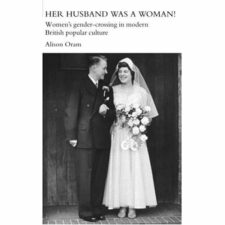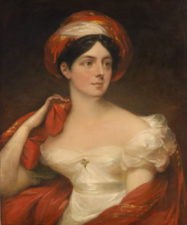In a small, sparsely furnished office in Kingston in the spring of 1928 Jamaica’s feisty first woman editor-publisher Una Marson proudly proclaimed, ‘This is the age of woman: what man has done women may do’. Born in 1905 in the county parish of St Elizabeth, Marson, the headstrong daughter of a Baptist parson rose to become an internationally famous feminist, poet, playwright, journalist, social activist and BBC broadcaster. In word and deed, Marson was a progressive intellectual with an incandescent intelligence whose ideas centred on women’s liberation, racial equality and cultural nationalism.
In 1922, after leaving the colonial and conservative Hampton high school in Kingston, Marson steered her career path towards stenography and social activism, working for the Salvation Army and YMCA. In 1928, Marson founded the journal The Cosmopolitan, which was aimed at middle-class black professional women. The journal consisted of poetry, short stories and articles that offer a splendid snapshot into the glorious technicolour of Marson’s literary gifts. By the early 1930s, Marson had established her place in Jamaica’s literary scene having published two volumes of poetry, Tropic Reveries (1930), and Heights and Depths (1931), and she staged her first play, At What A Price (1932), to popular acclaim.
In 1932, Marson arrived in London for what was meant to be a three-month vacation, but it turned out to be a four-year sojourn. In the metropole, Marson joined fellow Jamaican Harold Moody’s multi-racial organisation, The League of Coloured Peoples (hereafter LCP), and became editor of its journal, The Keys. As a central member of the LCP, Marson worked with leading pan-African and anti-colonial black intellectuals including C. L. R. James, George Padmore and Jomo Kenyatta. In 1933, the West Indian, African and English members of the LCP were cast as actors in the production of At What a Price at the YMCA hostel on Great Russell Street. The popularity of At What a Price saw it staged at the Scala Theatre, and the play made history as the first black colonial production in the West End.
Alongside the hustle and bustle of London life, Marson was also confronted with ruthless racism. She expressed her experience of racism in her polemic poem ‘Nigger’ written for The Keys in 1933, where she recounted an incident when a group of white children shouted the racist moniker to her as she strolled along a street. As one of a small number of black women living in London in the 1930s, Marson was at pains to stress the specific difficulties black women faced stating, “Once I tried to register work as a stenographer. One agent told me that she didn’t register black women because they would have to work in offices with white women”.
Although Marson’s stay in London was at times painful, it was also fruitful. In the metropole she became affiliated with a number of British and International feminist organisations. In April 1935, she was the first Jamaican invited to speak at the International Alliance of Women for Suffrage and Equal Citizenship in Istanbul. Marson graciously took to the stage to give a speech on the topic of ‘East and West in Cooperation’ and called upon colonial powers in Africa to protect the rights of African women demanding, “they must do this in all spheres, social, religious and educational”. In the same year, she became the first black woman invited to attend the League of Nations at Geneva. Following the 1935 Italian invasion of Abyssinia, Marson served as secretary to Abyssinian Emperor Haile Selassie when he visited London and travelled with him to Geneva in 1936. Her exhaustive workload during this period triggered a brief nervous breakdown and prompted her return to Jamaica.
The strikes and protests that swept across the Caribbean islands in the late 1930s thrust Marson back into Jamaica’s intellectual scene. In her column in Public Opinion, a weekly progressive paper, she flaunted her stiletto-sharp journalistic genius and reflected on her experiences of London life. In her articles, Marson also sought to encourage feminism claiming, “the idea of feminism is not to make a woman more conscious of her sex but to develop that within her which will make for a live, active mental and physical personality”.
In 1937, Marson published her third poetry collection The Moth and the Star that was sprinkled with topics that ranged from love and nature to racism and gender politics, and she staged her second play London Calling. The following year Marson sealed her status as a successful playwright when she staged her most popular play based on the Afro-Jamaican religious cult, Pocomania. During this period, Marson returned to social activism raising money for the Jamaica Save the Children Association. In 1938, Marson moved back to London and three years later she became the first black woman to be employed by the BBC. Marson was appointed programme assistant for the radio series Calling the West Indies, which by 1943 had developed to the literary powerhouse Caribbean Voices. Through her role at the BBC, Marson befriended the likes of George Orwell, TS Eliot and William Empson.
In 1945, Marson published her final poetry collection Towards the Stars and returned to Jamaica where, on her arrival, huge excited crowds met her. Details about Marson’s life after 1945 are obscure, but it is believed that after a brief return to London, and a prolonged recuperation from ill-health and depression, in 1949 she became organising secretary for the Pioneer Press, the book-publishing arm of Jamaican newspaper The Gleaner. Between 1950 and 1965, Marson travelled around the Caribbean, United States and Israel expressing her views in a voice that was evocative, powerful and passionate. In 1960, she briefly and secretively married an African-American dentist. On May 6 1965, Marson suffered a heart attack in Jamaica. Her body and soul was laid to rest in an unmarked grave.
Today, Marson is recognised as the first major woman poet of the Caribbean and an outstanding feminist. Marson was a vulnerable yet worldly-woman who dedicated her life to the great causes of her day including gender equality and racial solidarity which she most poignantly portrayed in her poem ‘There will come a time’ (1931) where she looked forward to the day when peoples of the world
…will look to each other’s hearts And souls, and not upon their skin … while I live, ‘Tis mine to share in this gigantic task Of oneness for the world’s humanity.Further Reading
Macauley, J, D, The Life of Una Marson 1905-65 (Manchester, University Press, 1998).
Marson, U, Selected Poems (ed.), A. Donnell (Peepal Tree Press, Leeds, 2011).
Imaobong Umoren is a history student at King’s College London and hopes to research Una Marson and her contemporaries further in the future. She is a big supporter of Women’s History Network blog because of its wide appeal to public and academic audiences, and for its commitment to bringing the hidden histories of women out of the darkness and into the light.


1 thought on “Una Marson 1905-65”
Comments are closed.